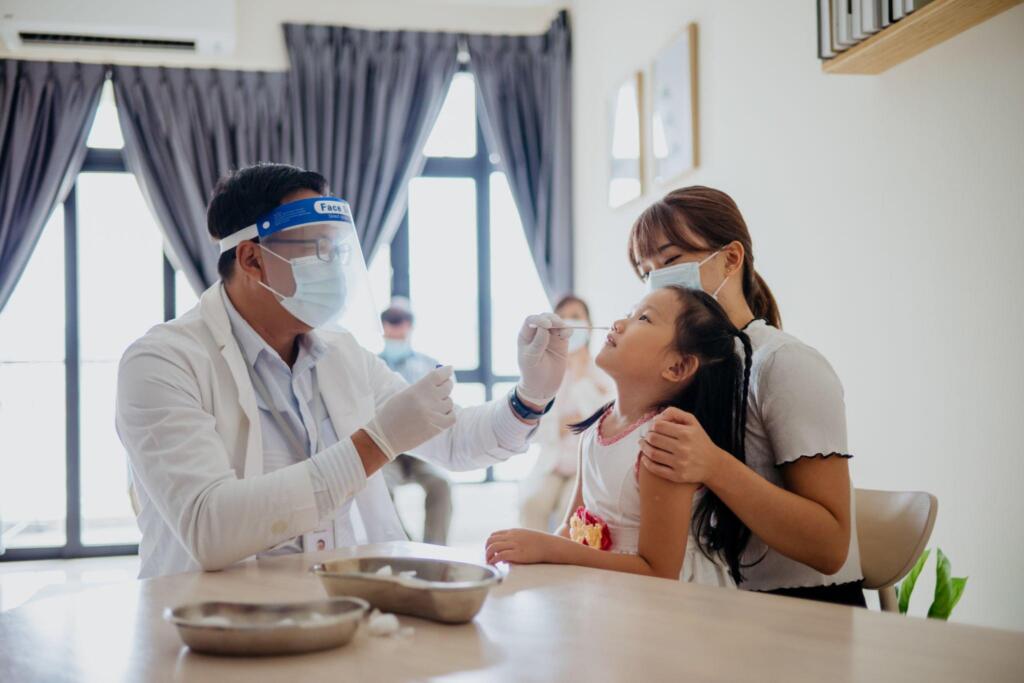Choosing a medical specialisation is a pivotal decision for medical students, shaping the trajectory of their careers and influencing the lives they will impact. The field of medicine in Malaysia is vast and diverse, offering a multitude of specialisations catering to various interests and aptitudes. This guide aims to assist medical students in navigating the complex landscape of medical specialisations, providing insights into different branches of medicine and factors to consider when making this crucial decision.
Understanding the Diversity of Medical Specialisations
Medicine is not a one-size-fits-all profession. It encompasses numerous specialisations, each with its unique set of challenges, patient populations, and treatment modalities. As a medical student, it’s crucial to explore these specialisations to discover where your passion lies and where you can make the most significant impact.
Medicine
Internal medicine focuses on the diagnosis, treatment, and prevention of adult diseases. Internists often serve as primary care physicians, managing a broad range of illnesses and coordinating care for their patients. Subspecialties within internal medicine include cardiology, gastroenterology, endocrinology, and infectious diseases.
Surgery
For those with a penchant for the operating room, surgical specialties offer a hands-on approach to patient care. General surgery provides a foundation, while subspecialties like orthopaedic surgery, neurosurgery, and plastic surgery allow for further specialisation.
Paediatrics
Paediatricians specialise in the care of infants, children, and adolescents. This field is diverse, covering everything from general paediatrics to paediatric cardiology, gastroenterology, and neonatology. Paediatricians play a crucial role in promoting the health and well-being of the youngest members of society.
Obstetrics and Gynaecology
Obstetricians and gynaecologists focus on women’s reproductive health. They provide prenatal care, deliver babies, and address a range of gynaecological issues. This specialisation is rewarding for those interested in women’s health throughout the life cycle.
Psychiatry
Mental health is an integral aspect of overall well-being, and psychiatrists play a vital role in diagnosing and treating mental illnesses. Subspecialties in psychiatry include child and adolescent psychiatry, geriatric psychiatry, and addiction psychiatry.
Radiology
Radiologists use medical imaging techniques such as X-rays, CT scans, and MRIs to diagnose and treat diseases. Interventional radiology, nuclear medicine, and diagnostic radiology are among the specialised branches within this field.
Anaesthesiology
Anaesthesiologists are responsible for administering anaesthesia and monitoring patients during surgery. This field requires a keen understanding of pharmacology and physiology, to ensure patient safety during procedures.

Family Medicine
Family medicine practitioners offer comprehensive care to individuals and families. They address a wide array of medical issues and often serve as the first point of contact for patients seeking healthcare. If you are considering becoming a Family Medicine Specialist, MInTFM (Malaysia-Ireland Training Programme for Family Medicine) provides high-calibre training led by industry professionals tailored for medical doctors who are looking to pursue a career in Primary Care.
Factors to Consider When Choosing a Specialisation
Personal Interest and Passion
Identifying your interests and passion within the medical field is crucial. Consider the aspects of medicine that genuinely excite and motivate you. Whether it’s solving complex medical puzzles, performing surgeries, or building long-term relationships with patients, your passion will sustain you through the challenges of your chosen specialisation.
Work-Life Balance
Different medical specialisations come with varying workloads and lifestyle demands. Some specialties, like surgery and emergency medicine, may involve irregular hours and high-stress situations. On the other hand, fields like dermatology or radiology may offer more predictable schedules. Assessing your preferences for work-life balance is essential in finding a specialisation that aligns with your lifestyle goals.

Patient Interaction
Consider the level of patient interaction that aligns with your personality. If you thrive on building long-term relationships and providing continuity of care, primary care fields like family medicine or internal medicine may be a good fit. For those who prefer focused, procedural interactions, surgical or procedural specialties might be more suitable.
Future Trends and Job Market for Medicine in Malaysia
The landscape of medicine is dynamic, and certain specialties may experience growth or changes over time. Researching the current job market and anticipating future trends can help you make an informed decision. Consider factors such as demand for specific specialties, geographic variations, and potential advancements in medical technology.
Navigating the Decision-Making Process
Choosing a medical specialisation is a significant decision, and the process should be approached with careful consideration and self-reflection. Here are some practical steps to help you navigate this crucial decision-making process:
1. Self-Assessment
Reflect on your strengths, weaknesses, interests, and values. Consider your preferred work environment, the type of patient interactions that resonate with you, and the level of intellectual challenge you seek in your daily work.
2. Gain Exposure
Actively seek opportunities to explore different medical specialties. Engage in clinical rotations, shadowing experiences, and informational interviews with practising physicians. Hands-on exposure can provide invaluable insights into the day-to-day realities of each specialisation.
3. Seek Mentorship
Connect with mentors who can share their experiences and insights into various medical specialties. Establishing relationships with physicians in different fields can provide guidance and help you make informed decisions about your future career path.
4. Utilise Resources
Take advantage of resources provided by your medical school, professional organisations, and online platforms. Attend career fairs, informational sessions, and workshops that offer information about different medical specialties.
5. Consider Long-Term Goals
Think about your long-term career goals and how your chosen specialisation aligns with them. Consider whether you aspire to work in academic medicine, pursue research opportunities, or contribute to healthcare policy.

Pursue a Medical Degree with RUMC
This guide is what our Undergraduate Medicine students at RUMC go through in becoming the next leaders of Malaysia’s healthcare system. Choosing a medical specialisation is a multifaceted and personal decision that requires thoughtful consideration. By exploring the diverse landscape of medical specialties, assessing your interests and values, and considering practical factors like work-life balance and job market trends, you can make an informed decision that aligns with your professional and personal goals. Remember that the journey to finding the right specialisation is unique for each medical student, and embracing the process can lead to a fulfilling and rewarding career in medicine.
At RUMC, our students get the opportunity to experience high-quality clinical training that allows them to get exposure to different kinds of specialties they could venture into. With great mentors to learn from, RUMC assures our students that they graduate not only with an internationally recognised medical degree but also with a wealth of experience that shapes them into well-rounded medical professionals.
Apply for RUMC’s Undergraduate Medicine today and experience a transnational educational experience in both Dublin, Ireland and Penang, Malaysia.












